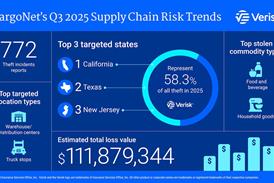Law firm Husch Blackwell has laid out an overview of what the possible impacts of the US sanctions against Russia could mean for businesses.
The “extensive and complex trade sanctions and export controls” put in place against Russia in response to its invasion of Ukraine do not represent a full embargo with Russia, said Husch Blackwell. Nevertheless, US companies doing business with the country “will be subject to extensive restrictions going forward, and many of those companies will need to terminate their transactions or activities immediately”.
The law firm said: “These restrictions will be especially onerous for companies that produce US export-controlled items. Even if your company’s transactions with Russia continue to be permissible, these new sanctions that target the Russian economy and financial system may make it difficult (or, in some instances, impossible) to make or receive payments associated with those transactions.”
The firm issued some advice for US companies. It said: “Companies doing business in or with Russia should carefully screen their counterparties, the financial institutions involved in those transactions, and their ultimate beneficial owners against all applicable US sanctions lists and should also carefully consider whether those transactions might involve ‘military end users’.
“If your company has any letters of credit, performance guarantees or other financial instruments issued through any Russian financial institution, then you should determine whether those arrangements will violate these new sanctions.
“It will be especially important to ensure that any products exported, re-exported or transferred (in-country) to Russia are properly classified under the US Export Administration Regulations. Depending on your products’ Export Control Classification Numbers (ECCNs), your transactions may be prohibited or may require export licensing.
“In some instances, General Licenses may be available for you to continue or wind down specific transactions, but many of those General Licenses will expire within 30 days from February 24, 2022.”
It is important to remember, Husch Blackwell continued, that the requirements are rapidly evolving and remain subject to change. “Continue to closely monitor further Russia-related developments in US sanctions and export controls policy,” it added.
Read more here.













